How to Plan a Stress-Free Event with the Right Catering Partner
The Catering Stop2024-06-11T11:09:30+00:00Planning an event can be a daunting task, filled with numerous details and decisions. One of the most crucial aspects of event planning is catering, as it significantly impacts your guests’ experience. Partnering with the right catering service can make the process smooth and stress-free. Here’s a comprehensive guide to help you plan a successful event with the right catering partner.
1. Understanding Your Event Needs
Determine the Type of Event
First, identify the nature of your event. Is it a wedding, corporate event, birthday party, or a casual get-together? Each type of event has unique requirements and expectations regarding food and service.
Estimate the Number of Guests
Knowing the number of attendees is vital. It helps in planning the menu, portions, and staffing requirements. Try to get an accurate headcount to avoid over or under-preparation.
Set a Budget
Define a clear budget for catering. Consider all aspects, including food, beverages, service charges, and additional costs like rentals for equipment and décor. A clear budget helps you communicate your financial limits to potential caterers.
2. Research and Choose the Right Catering Partner
Seek Recommendations and Reviews
Start by asking friends, family, and colleagues for recommendations. Online reviews and testimonials can also provide valuable insights into a caterer’s reliability and quality.
Check Their Experience
Look for caterers who have experience with your type of event. Experienced caterers are more likely to handle any unforeseen issues efficiently.
Evaluate Their Menu Options
A good catering service should offer a diverse menu that can be customized to suit your event’s theme and dietary preferences. Check if they can accommodate special dietary needs like vegetarian, vegan, gluten-free, or allergies.
Schedule Tastings
Before making a final decision, arrange a tasting session. This allows you to sample the food and assess its quality, presentation, and taste.
3. Communicate Your Vision Clearly
Share Your Event Details
Provide your caterer with all the relevant details about your event, including the venue, schedule, and any specific themes or ideas you have in mind. The more information they have, the better they can tailor their services to meet your needs.
Discuss Menu Preferences
Collaborate with your caterer to create a menu that aligns with your event’s theme and your guests’ preferences. Don’t hesitate to ask for suggestions and professional advice.
Address Special Requirements
Make sure to inform your caterer about any special requirements, such as dietary restrictions, allergies, or specific cultural food preferences. This ensures all guests have a pleasant dining experience.
4. Plan the Logistics
Venue Coordination
Ensure your caterer is familiar with the venue. They should know the kitchen facilities available, the layout for serving, and any restrictions the venue might have.
Service Style
Decide on the type of service that best suits your event. Options include buffet, plated dinners, food stations, or family-style service. Discuss the pros and cons of each with your caterer to choose the best fit.
Staffing Needs
Based on your event size and service style, determine the number of staff needed. This includes servers, bartenders, and chefs. A well-staffed event ensures smooth and efficient service.
5. Focus on Presentation
Food Presentation
The way food is presented can significantly impact your guests’ experience. Discuss presentation styles with your caterer. This includes plating for a seated dinner or the arrangement of dishes in a buffet.
Themed Décor
If your event has a specific theme, ensure that the catering setup complements it. This could involve themed table settings, matching uniforms for the staff, or creative food displays.
Table Settings and Utensils
Choose table settings and utensils that match the formality of your event. Discuss with your caterer if they provide these or if you need to rent them separately.
6. Plan for Beverages
Alcoholic Beverages
If you plan to serve alcohol, decide whether you want an open bar, cash bar, or limited selection. Ensure the caterer can provide licensed bartenders and the necessary permits.
Non-Alcoholic Options
Offer a variety of non-alcoholic beverages, such as mocktails, juices, and soft drinks. This caters to guests who don’t consume alcohol and ensures everyone has refreshing options.
Specialty Drinks
Consider having a signature drink that matches your event’s theme. This adds a unique touch and enhances the guest experience.
7. Conduct a Final Walkthrough
Confirm Details
A few days before the event, conduct a final walkthrough with your caterer. Confirm all details, including the menu, service style, timing, and any last-minute changes.
Discuss Contingency Plans
Discuss contingency plans for any potential issues, such as bad weather for outdoor events or unexpected guest count changes. A prepared caterer should have solutions ready for these scenarios.
Verify Contact Information
Ensure you have the contact details of the key catering personnel who will be on-site during the event. This ensures you can reach them quickly if needed.
8. Day of the Event
Arrival and Setup
Ensure your caterer arrives well before the event starts to set up. This includes preparing the kitchen area, setting up tables, and arranging any food stations.
Coordinate with Other Vendors
Your caterer should coordinate seamlessly with other vendors, such as the event planner, decorators, and AV team. Good communication ensures everything runs smoothly.
Monitor Service
While you should enjoy your event, it’s also important to keep an eye on the service. Designate someone to liaise with the caterer to handle any immediate issues that may arise.
9. Post-Event Follow-Up
Gather Feedback
After the event, gather feedback from your guests about the catering. This information is valuable for improving future events.
Evaluate the Caterer’s Performance
Assess the caterer’s performance based on food quality, service efficiency, and overall guest satisfaction. Provide constructive feedback to help them improve.
Express Gratitude
Thank your caterer for their hard work. A positive relationship can be beneficial for future events, and a simple thank-you goes a long way.
Real-Life Example: Successful Event Planning with the Right Catering Partner
To illustrate these steps, let’s consider a real-life example.
Case Study: Corporate Gala Dinner
Event Overview: A leading company planned a corporate gala dinner for 200 guests to celebrate its 10th anniversary. The event included a formal dinner, speeches, and live entertainment.
Catering Partner: The company chose a well-recommended catering service with extensive experience in corporate events.
Planning Process:
- Understanding Needs: The company and caterer discussed the event’s theme, guest preferences, and budget. They decided on a three-course plated dinner to match the formal occasion.
- Menu Tasting: A tasting session was conducted to finalize the menu, ensuring it included options for vegetarian and gluten-free guests.
- Logistics: The caterer visited the venue to understand the kitchen facilities and layout. They also coordinated with the event planner to ensure smooth service during speeches and performances.
- Presentation: The caterer provided elegant table settings and beautifully plated dishes that matched the gala’s sophisticated theme.
- Beverages: An open bar with a selection of wines, spirits, and non-alcoholic beverages was arranged. A signature cocktail was created for the event.
- Final Walkthrough: A few days before the event, a final walkthrough confirmed all details and contingency plans.
Event Day: The catering team arrived early to set up. The dinner service was smooth, with courses served on time and to the guests’ satisfaction. Coordination with other vendors ensured seamless transitions between dinner and entertainment.
Post-Event: The company received positive feedback from guests about the food and service. They expressed gratitude to the caterer and discussed potential future collaborations.
Conclusion
Planning a stress-free event with the right catering partner involves understanding your needs, thorough research, clear communication, and meticulous planning. By following these steps, you can ensure your event is memorable and enjoyable for all your guests. Remember, a good catering partner is not just about providing food but enhancing the overall experience of your event. With the right collaboration, you can host an event that leaves a lasting impression on your guests.




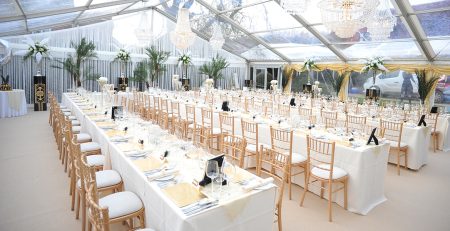

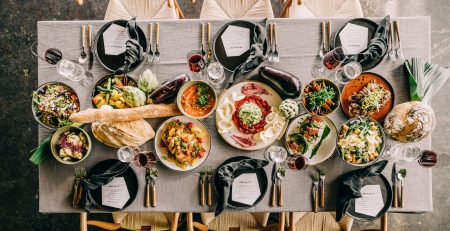
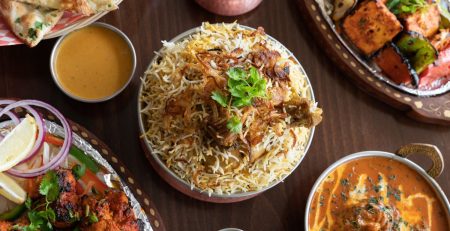
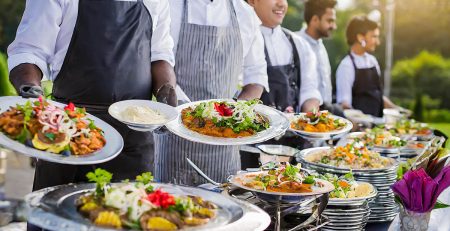



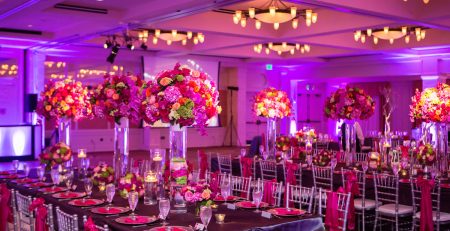


Leave a Reply